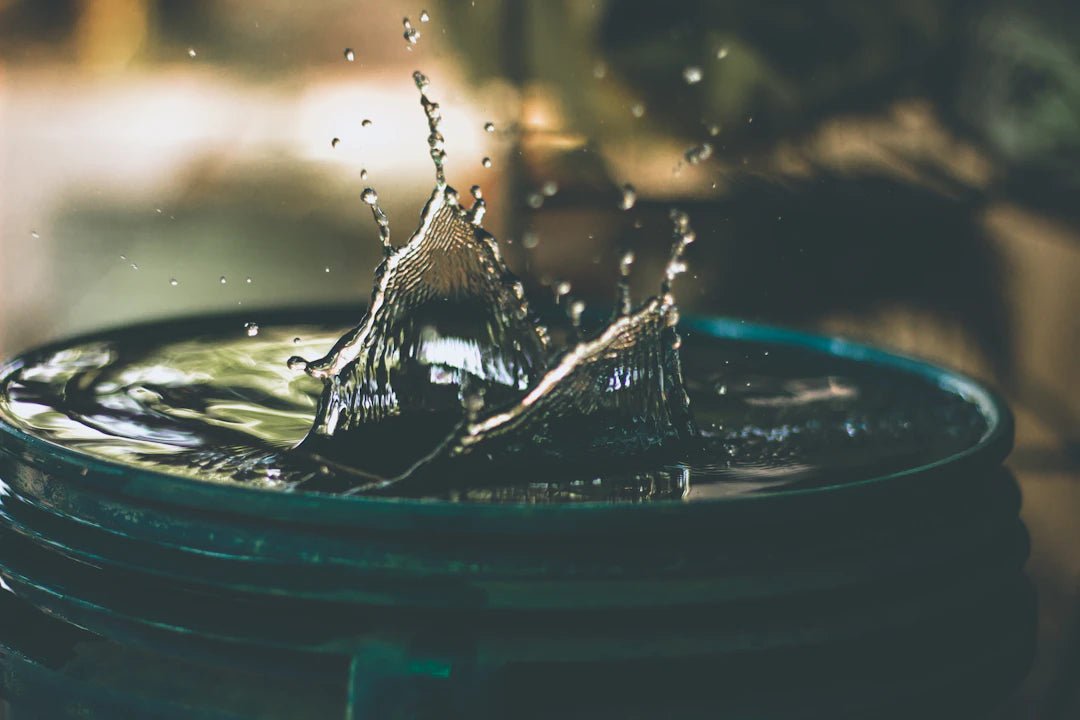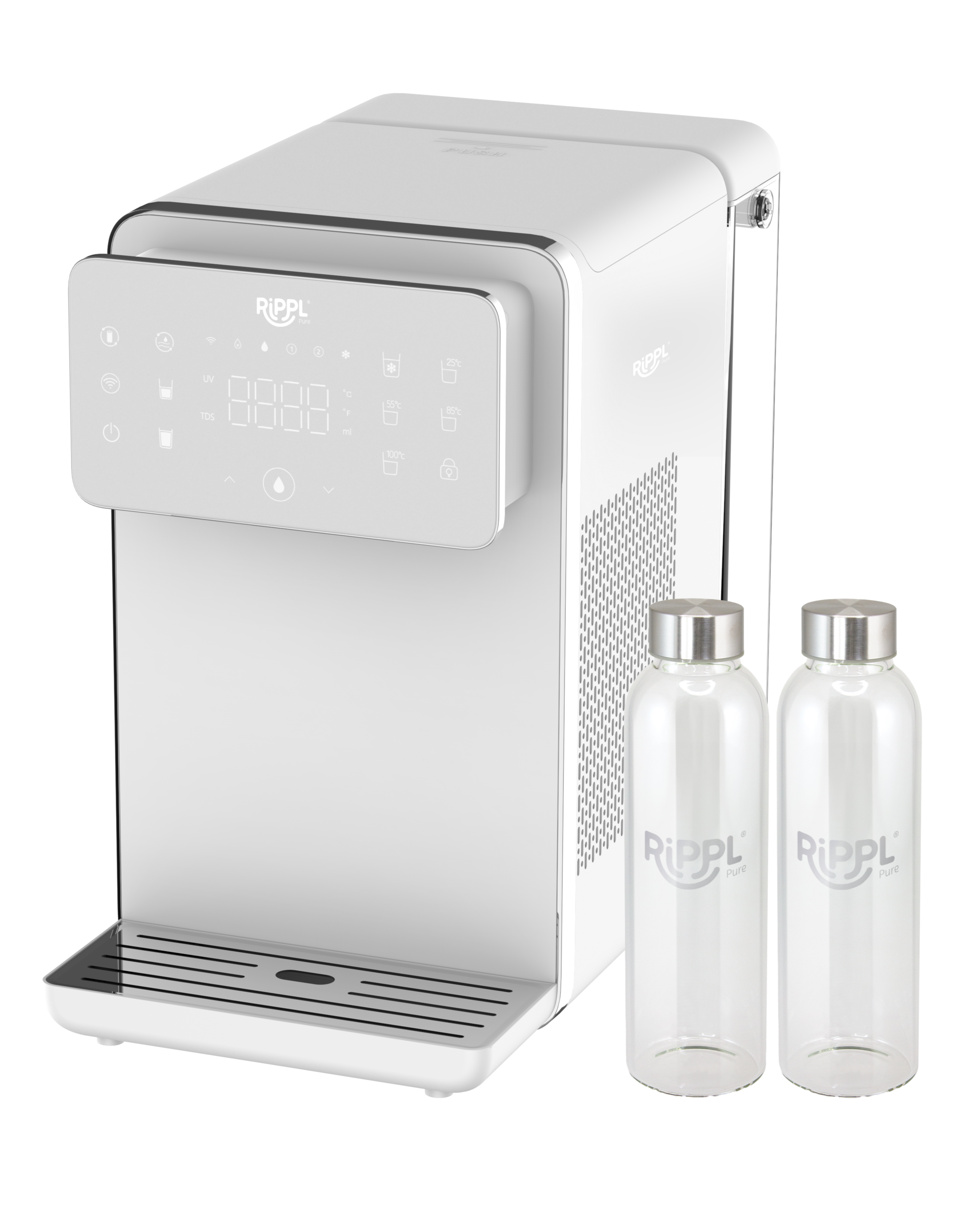
Unveiling the Truth: Common Contaminants Found in Your Tap Water
When we turn on the tap for a refreshing glass of water, we often assume it's safe, clean, and healthy. However, many people are unaware of the potential contaminants lurking in their tap water. This blog post will explore the common contaminants found in tap water in Australia and why investing in solutions like water filters or sparkling mineral water cans can elevate your hydration routine. Let’s dive into the world of water quality and understand what’s in our water.
Understanding Tap Water Quality in Australia
Australia has access to some of the best-quality tap water in the world, thanks to stringent regulations and extensive purification systems. Regional variations, however, can lead to varying water quality. Despite these high standards, there are still common contaminants that can make their way into the water supply. Understanding these contaminants emphasizes the importance of water purification methods, including reverse osmosis, and can encourage the transition to safer drinking options, such as sparkling mineral water.
Common Contaminants Found in Tap Water
1. Microbial Contaminants
Microbial contaminants include bacteria, viruses, and protozoa. Often entering the water supply due to inadequate sanitation or aging infrastructure, these pathogens can cause serious health issues. Notably, Escherichia coli (E. coli) is a common bacterium that may signal fecal contamination. For families, especially those with young children or immunocompromised individuals, using a reliable water filter becomes essential to eliminate these potential dangers.
2. Heavy Metals
Heavy metals such as lead, mercury, and arsenic can enter drinking water supplies from industrial discharges, plumbing materials, and natural deposits. Lead contamination, specifically, can occur from old lead pipes or plumbing fixtures. These metals pose various health risks, including neurological damage and developmental issues in children. A quality water filter can effectively remove these harmful substances from your water.
3. Chlorine and Chloramine
Chlorine and chloramine are chemicals commonly used for disinfecting drinking water. While they play a crucial role in killing harmful microbes, consuming water with high levels of these chemicals can lead to unpleasant taste and odor. If you enjoy the crisp, refreshing flavors of sparkling water, consider investing in a water filter that reduces chlorine or exploring sparkling mineral water cans to ensure a tasty hydration experience without the chemical aftertaste.
4. Nitrates
Nitrates originate mainly from agricultural runoff and can infiltrate drinking water supplies. Although generally harmless for adults, excessive nitrate consumption poses a significant health risk to infants, possibly leading to “blue baby syndrome,” which impairs oxygen transportation in the bloodstream. To protect the youngest members of your family, filtration methods like reverse osmosis can effectively reduce nitrate levels in water.
5. Pesticides and Herbicides
With Australia being a major agricultural nation, pesticides and herbicides can seep into water sources, resulting in potential health risks for consumers. Chronic exposure can lead to various health issues, emphasizing the need for filtration systems that can help remove these contaminants, making your water safer to drink.
The Benefits of Filtered Water
It’s clear that contaminants can be problematic, but how can using a water filter enhance your water quality and health? Here are some compelling benefits:
- Improved Taste: By removing chlorine and other impurities, filtered water tastes fresher and more refreshing.
- Contaminant Removal: Quality water filters can eliminate a wide range of contaminants, including heavy metals and microbial pathogens.
- Environmental Impact: By using a water filter instead of purchasing bottled water, you can reduce plastic waste and contribute to a healthier planet.
- Cost-Effective: Investing in a water filter can save you money in the long run compared to regularly purchasing bottled water.
Exploring Natural Alternatives: Sparkling Mineral Water
If you’re looking for a refreshing alternative to tap water, consider sparkling mineral water. Unlike carbonated soft drinks, sparkling mineral water undergoes minimal processing and retains its minerals. Traditionally sourced from natural springs, it often contains essential nutrients like calcium and magnesium, making it a wonderful tonic for your body.
Why Choose Sparkling Mineral Water?
Drinking sparkling mineral water offers several health benefits:
- Hydration: Just like regular water, sparkling mineral water keeps you hydrated but with a delightful fizz that enhances your drinking experience.
- Digestive Health: Some studies suggest that sparkling water can aid digestion and reduce discomfort after meals.
- Mineral Content: Enjoying mineral water can help supplement your diet with minerals essential for bodily functions.
Choosing the Right Water Filter
When it comes to selecting a water filter, several types are available, each designed to address specific contaminants:
1. Activated Carbon Filters
Commonly used in pitcher filters and faucet attachments, activated carbon filters effectively remove chlorine, sediment, and volatile organic compounds. They improve taste but may not be efficient against all contaminants.
2. Reverse Osmosis Systems
Reverse osmosis (RO) systems provide thorough purification by forcing water through a semi-permeable membrane, effectively removing a broad range of contaminants, including heavy metals, nitrates, and some microbes. While they are among the most effective purification methods, they do require ongoing maintenance and can waste some water during the filtering process.
3. UV Water Purifiers
Using ultraviolet light, these purifiers kill microorganisms without adding chemicals to the water. They are often used in conjunction with other filtration systems for enhanced safety.
4. Ion Exchange Systems
These systems are specifically effective at removing minerals, such as calcium and magnesium, which cause hardness in water. They’re often combined with other filtration methods.
Prevention is Better Than Cure
To ensure your drinking water is as pure as possible, it’s essential to regularly test your tap water, especially if you rely entirely on it. Local water utilities often provide annual water quality reports, but independent testing can also provide peace of mind. If your water source shows concerning levels of contaminants, consider transitioning to regular consumption of filtered water or high-quality sparkling mineral water cans.
Making Informed Decisions for Your Hydration Needs
The importance of understanding what is in your tap water cannot be overstated. While Australia generally provides high-quality drinking water, contaminants can still pose risks to your health. By educating yourself and investing in a reliable water filter or choosing fresh sparkling mineral water, you can take control of your hydration and ensure a safer, more enjoyable sipping experience. The journey to clean water begins with awareness and action, empowering you to make informed choices for a healthier lifestyle.



